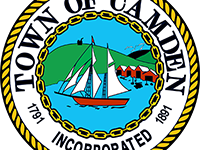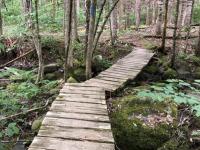Unprepared for disasters, natural or otherwise
We seem proud that our phone numbers are no longer in phone books, which hardly exist anyway, so contacting neighbors by phone in time of crisis is not easy, and knocking on doors is hardly done. We assume that everyone can look for anything they need on the internet, but there are still many people who don’t have “devices” or the skill to navigate the changing systems. How do we know if anyone is in trouble in times of disaster, natural or otherwise?
We are seeing, across the country, the fragility of our institutions, now in the time of the virus, a kind of natural disaster we had forgotten about. The advice of FEMA on preparing for natural disasters seems to be largely about stocking up on toilet paper (and paper towels perhaps) and buying water in plastic bottles.
We more and more resemble a “Third World” country in our inability to take care of people in need, where the small local economies that provide resilience in disaster are lost, and national services are inadequate or nonexistent. As our systems go down, and we see ourselves as we are, fairly helpless and vulnerable in the present, rushing to help each other as we should, and plotting to fix it all in the future, we can practice disaster thinking now, which is all about water, food, staying warm or cool enough and sanitation.
It is spring (how lucky) and we have time to put in gardens, in case our long distance food systems get worse, to sign up for a CSA at a nearby farm (crossing our fingers that the farmers markets will happen).
We can learn how to store some of the produce, especially in ways that don’t require electricity in case of long outages.
Bulk grains and dry beans in tight trash cans are good back up.
We can start planting more shade trees to cool our towns (and store carbon) in the longer term, and, conversely, install solar panels to have some electricity when that goes down.
Have a wood stove, or friends with one, for winter emergencies, and candles that don’t need batteries. Warm clothes to layer, because we still have winter.
Back in the “third world”, we learned how to “purify” water if it wasn’t safe and we couldn’t boil it: 8 drops, from an eyedropper, of chlorine bleach, to a gallon of water, then wait ½ hour before drinking, and, if children became dehydrated from diarrhea, we made oral rehydration fluids (ORT) to keep them going: 6 level teaspoons of sugar and 1/2 level teaspoon of salt dissolved in 1 litre (c. 5 cup) of safe water (boiled, distilled or chlorinated)
We used to fill the bathtub (we had one!) with water immediately, not matter what!
But the hardest problem of big disasters (especially when people are on the move) is sanitation, dealing with poop and keeping it out of open water.
This can be managed with a true composting toilet system: a plastic bucket with a good lid and a container of sawdust, shredded paper, dirt or leaves to cover each deposit (the smell disappears instantly), emptying the bucket when heavy enough, into a designated covered compost bin.
Urine, which is practically antiseptic, can be collected separately, in gallon jugs (with a wide funnel for women), poured on compost heaps. used dilute to fertilize plants (and used as an (odorous) cleaner in some cultures)
Phew! That’s enough for now. We still need a universal healthcare system, we still need to get off perpetual “growth”
But we can work on this, community and resilience, as we go through and emerge the other side of the pandemic.
Beedy Parker lives in Camden
Event Date
Address
United States






















